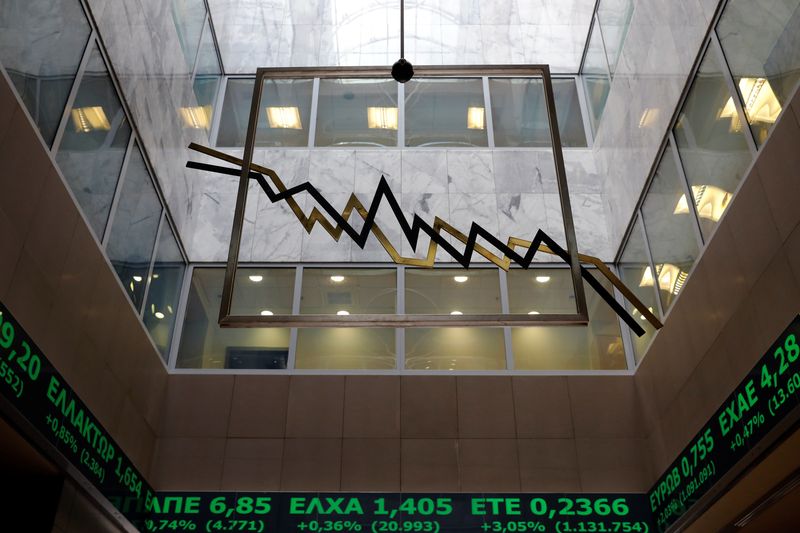By Yoruk Bahceli
(Reuters) - Greece's return to investment-grade credit ratings it lost more than a decade ago during the euro debt crisis is a done deal as far as bond investors are concerned.
The country, rated 'junk' by all three leading rating agencies, has since the end of its bailout programme in 2018 worked to win back investor favour and the much-coveted rating - a rubber stamp to fiscal probity.
Investors are hopeful that the New Democracy Party - the clear winner in Sunday's election though it fell short of an outright majority - will stay in power after a repeat vote in June and continue reforms, paving the way for Greece to reclaim the ratings.
Analysts at the banks that deal in Greek government debt said that after this week's sharp drop in borrowing costs, the bonds were already trading like investment-grade paper.
Even though Italy has investment-grade credit ratings from three big ratings agencies, Greek 10-year bond yields around 3.9% are now trading about 50 bps below Italy's,, the largest discount since at least 1999 according to Refinitiv data.
"I would say that the (rating) upgrade is in the price. We don't expect much of a move tighter with the upgrade," said Jean-Christophe Machado, rates strategist at BNP Paribas (EPA:BNPP), referring to the Greek-German yield spread.
Greek 10-year bond yields have fallen nearly 15 basis points (bps) following Sunday's election result.
The additional yield or spread Greek bonds pay over safe-haven Germany - which reflects their risk premium - is at its lowest since 2021.
Greece has BB+ ratings from S&P Global and Fitch and Ba3 rating from Moody's.
Since its bailout programme ended in 2018, Greece has regained market access, wrestled down its record public debt and growth is set to continue outpacing the European Union average this year and next.
A return to the much-coveted investment grade would be more than symbolic for the country. It would make Greek debt eligible for government bond indexes, attracting steady demand from a much bigger pool of global investors.
A first upgrade could come as early as October when S&P Global Ratings is due to review Greece's rating. When it assigned a positive outlook in April, it said it could upgrade Greece within the next year if a new government maintains fiscal discipline and the pace of reforms which unlock EU recovery funds.
JPMorgan (NYSE:JPM), which sees a "high probability" of Greece attaining an investment-grade rating by early 2024, expects the bond yield spread over Germany at 165 bps by March 2024, about 20 bps higher than now.
Machado at BNP Paribas expects Greece to offer a 125 to 180 basis point spread over Germany once rated investment-grade and included in indexes, compared to around 140 bps currently, suggesting any further tightening was limited.
Societe Generale (EPA:SOGN) rates strategist Sean Kou also expects little impact from an S&P Global upgrade in October, recalling what happened with Portugal in 2017.
Portugal's yields dropped sharply after an upgrade to investment-grade from S&P Global Ratings in 2017, but that move was a surprise, as the agency moved directly from a BB+ rating and stable outlook, rather than first assigning a positive outlook - its current stance on Greece.
A subsequent upgrade by Fitch Ratings had much less impact.
"A reason why we think it is already priced in is because now pretty much everyone is expecting that (upgrade)," Kou said.
Commerzbank (ETR:CBKG)'s head of rates and credit research Christoph Rieger said he also sees ratings upgrades by other rating agencies that would make Greek debt eligible for government bond indexes as already priced in.

According to Rieger, official inclusion in the indexes could attract index buyers, but there may also be some selling from fast money investors like hedge funds that had already bought Greek debt in anticipation of a move.
"Once that happens, they may cash out. So that's why I think net net, there shouldn't be a big rally on the back of the upgrade," Rieger said.